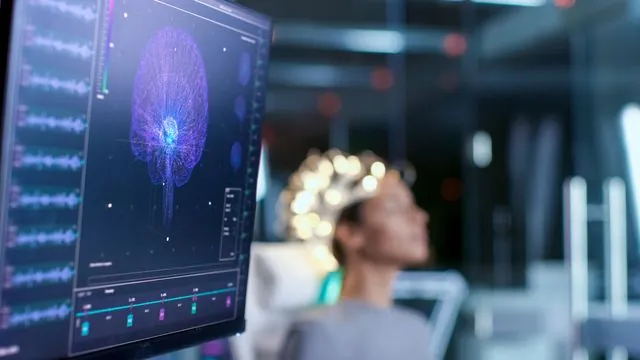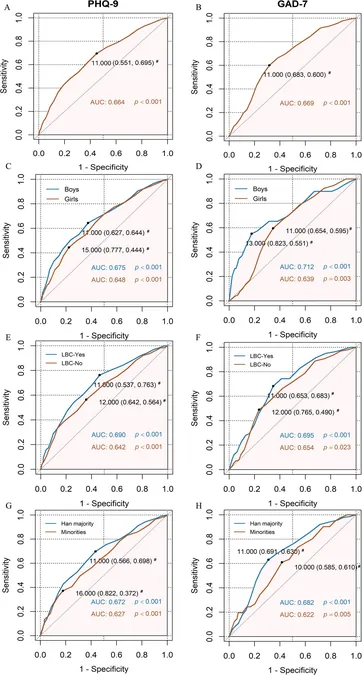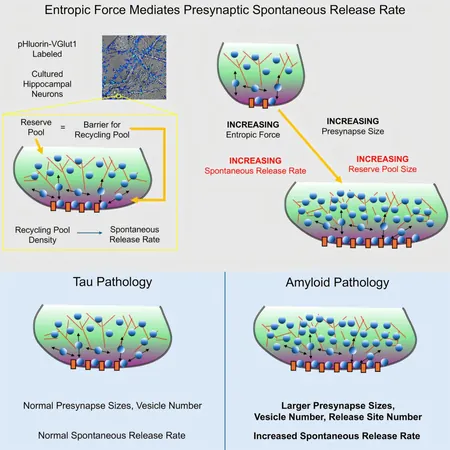
Groundbreaking Study Shows Deep Brain Stimulation Could Transform Lives of Children with Autism Struggling with Self-Injury
2025-03-21
Author: Siti
Introduction
A recent Phase I clinical trial published in the prestigious journal Biological Psychiatry has unveiled promising insights into the use of deep brain stimulation (DBS) as a potential treatment for severe self-injurious behavior in children with autism spectrum disorder (ASD). The findings indicate that targeting the brain's reward center, the nucleus accumbens (NAc), may not only be safe but could also lead to significant improvements in the quality of life for affected children.
Background on Self-Injurious Behavior
Self-injurious behavior in children with ASD can result in serious, long-term physical harm. Traditional behavioral therapies do not yield the same results for all patients, underscoring the need for innovative treatment options. Research led by Dr. George M. Ibrahim from the University of Toronto reveals that DBS in the NAc may alleviate these dangerous behaviors and presents an exciting avenue for further exploration.
Expert Commentary
Dr. John Krystal, Editor of Biological Psychiatry, emphasized the critical nature of this research. 'Repetitive self-injurious behavior is a perilous condition with limited treatment solutions. This novel approach explores a neurosurgical intervention that could potentially reshape outcomes for patients,' he remarked. Although these findings are preliminary, they offer hope and warrant additional investigation.
Pilot Trial Details
The pilot trial involved six children aged between 7 and 14 years, all of whom displayed severe self-injurious tendencies. Utilizing advanced methods such as wearable technology to track movements and PET scans to monitor changes in brain activity, researchers noted a correlation between DBS treatment and reduced self-injuring behaviors alongside enhanced overall well-being.
Current Treatment Landscape
Dr. Ibrahim pointed out that most current treatments for severe self-injurious behavior rely on non-specific psychopharmacological medications that are often prescribed off-label with questionable efficacy and potentially severe side effects. This highlights an urgent necessity for effective therapies that can offer safer alternatives.
The Role of the Nucleus Accumbens
The nucleus accumbens is integral to the brain’s mesolimbic reward pathway and plays a key role in processing reinforcement signals tied to pleasure and reward. Historically, DBS targeting this region has shown promise in treating conditions like obsessive-compulsive disorder (OCD) in adults by restoring balance to dysfunctional neural circuits. However, its application for children with neurodevelopmental disorders such as ASD has remained largely unexplored until now.
Future Implications
Dr. Ibrahim further noted, 'While DBS has been thoroughly examined in adult populations with various neurological and neuropsychological issues, its use in pediatric cases is relatively uncharted. This study marks a pivotal breakthrough, making it the first clinical trial utilizing DBS for a neurodevelopmental disorder in children, which opens the door for larger studies aimed at confirming safety, efficacy, and overall tolerability.'
Conclusion
As this field of research continues, it holds the potential to transform the therapeutic landscape for children with autism suffering from self-injurious behavior, potentially saving lives and enhancing the quality of life for both the children and their families. Stay tuned as researchers delve deeper into this groundbreaking study with the hopes of bringing this innovative treatment to a wider audience.




 Brasil (PT)
Brasil (PT)
 Canada (EN)
Canada (EN)
 Chile (ES)
Chile (ES)
 Česko (CS)
Česko (CS)
 대한민국 (KO)
대한민국 (KO)
 España (ES)
España (ES)
 France (FR)
France (FR)
 Hong Kong (EN)
Hong Kong (EN)
 Italia (IT)
Italia (IT)
 日本 (JA)
日本 (JA)
 Magyarország (HU)
Magyarország (HU)
 Norge (NO)
Norge (NO)
 Polska (PL)
Polska (PL)
 Schweiz (DE)
Schweiz (DE)
 Singapore (EN)
Singapore (EN)
 Sverige (SV)
Sverige (SV)
 Suomi (FI)
Suomi (FI)
 Türkiye (TR)
Türkiye (TR)
 الإمارات العربية المتحدة (AR)
الإمارات العربية المتحدة (AR)